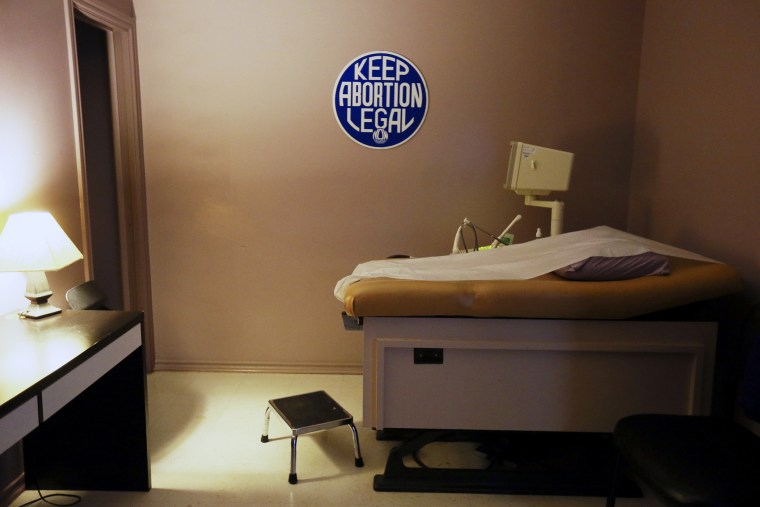NEW ORLEANS -- The law that is poised to shut all but eight of Texas’s abortion clinics, affecting nearly a million of the state's women, is back in court Wednesday. There’s very little the abortion clinics suing over the law and the state of Texas agree on – except that this is likely a dress rehearsal for a Supreme Court showdown.
But first, a three-judge panel of the Fifth Circuit Court of Appeals will hear oral arguments in a case brought by several abortion providers, challenging a law that forces clinics to turn into mini-hospitals known as ambulatory surgical centers, or else close. Under the law’s full force, one out of six Texan women seeking an abortion would live more than 150 miles from the nearest clinic.
RELATED: What you need to know about the Texas abortion case
Pro-choice advocates are also fighting to keep open two clinics in underserved areas along the Texas-Mexico border. Clinics in McAllen and El Paso tried but could not comply with a separate requirement of the law that their doctors have admitting privileges to local hospitals. They were able to reopen after the Supreme Court let stand a lower court ruling that said rural woman were unduly burdened by the law’s impact.
Texas claims the regulations are to foster women’s health, but major medical organizations such as the American Medical Association argue they are medically unnecessary and that they actually make women less safe by making legal abortion more inaccessible.
Wednesday’s proceedings are unlikely to surprise anyone: In October, a separate Fifth Circuit panel waved in the same law on a preliminary basis, with only an eleventh-hour order from the Supreme Court preventing an estimated 13 clinics from closing. Wednesday’s panel again includes George W. Bush appointee Judge Jennifer Elrod, who wrote that October opinion declaring, “In our circuit, we do not balance the wisdom or effectiveness of a law against the burdens the law imposes,” Elrod wrote then. Equally gloomy is the presence of Elrod’s fellow George W. Bush appointee, Catharina Haynes, who voted to uphold the admitting privileges provision in the previous round of litigation.
RELATED: How a recently reopened clinic helped one woman
There’s one new face: Judge Edward C. Prado, who was appointed by George W. Bush but is considered a moderate. Even if he votes to strike down the law, he’ll likely be outnumbered.
The ultimate stakes are high, both for the hundreds of thousands of Texans affected and across the country. Once the Fifth Circuit rules, the next stop will be a Supreme Court that has been reluctant to weigh in on abortion cases in recent years.
The highest court may not have much of a choice after the Texas case makes its way up. Hundreds of state-level abortion restrictions like Texas’s have passed in recent years, and courts have already reached vastly different conclusions about their constitutionality under Supreme Court precedent.
The Fifth Circuit in particular practically dared the Supreme Court to prove it wrong in its declaration that almost any abortion restriction is allowable as long as it passes the basic smell test. The current standard is that an abortion law can’t pose an “undue burden” on a woman seeking an abortion, but just what that means has been construed in wildly different ways.
RELATED: Opening day at embattled Texas abortion clinic
The provisions at issue are part of the omnibus abortion law that former gubernatorial candidate Wendy Davis filibustered in June 2013, but which later passed in special session. They were previously defended by then-attorney general, now governor Greg Abbott, who bested Davis by a wide margin in the November election.
The October 14 move by the Supreme Court, reversing the Fifth Circuit and maintaining the already-diminished status quo for clinics in Texas, was a rare spot of good news for abortion access. Three members of the court – Antonin Scalia, Clarence Thomas and Samuel Alito – said they would have denied the clinics’ appeal entirely. Either or both Chief Justice John Roberts and Justice Anthony Kennedy appeared to have signed on with the court’s liberals, but did not sign their names. Both Roberts and Kennedy voted to let the earlier admitting privileges portion of the law to go into effect, which also closed more than a dozen clinics.
